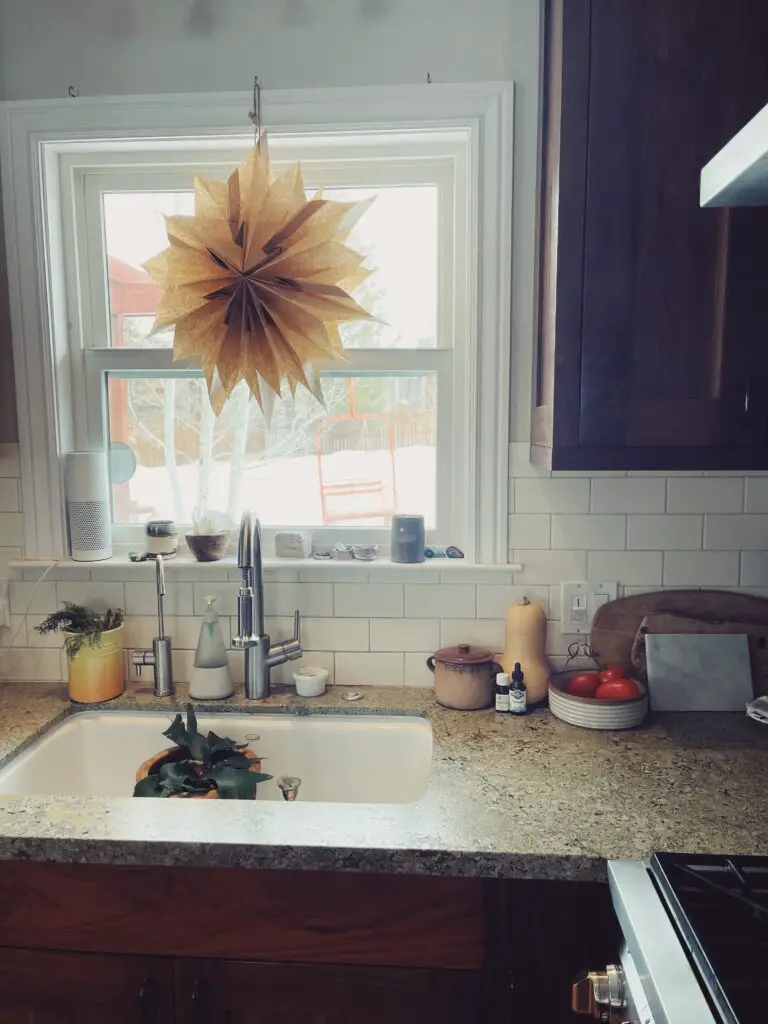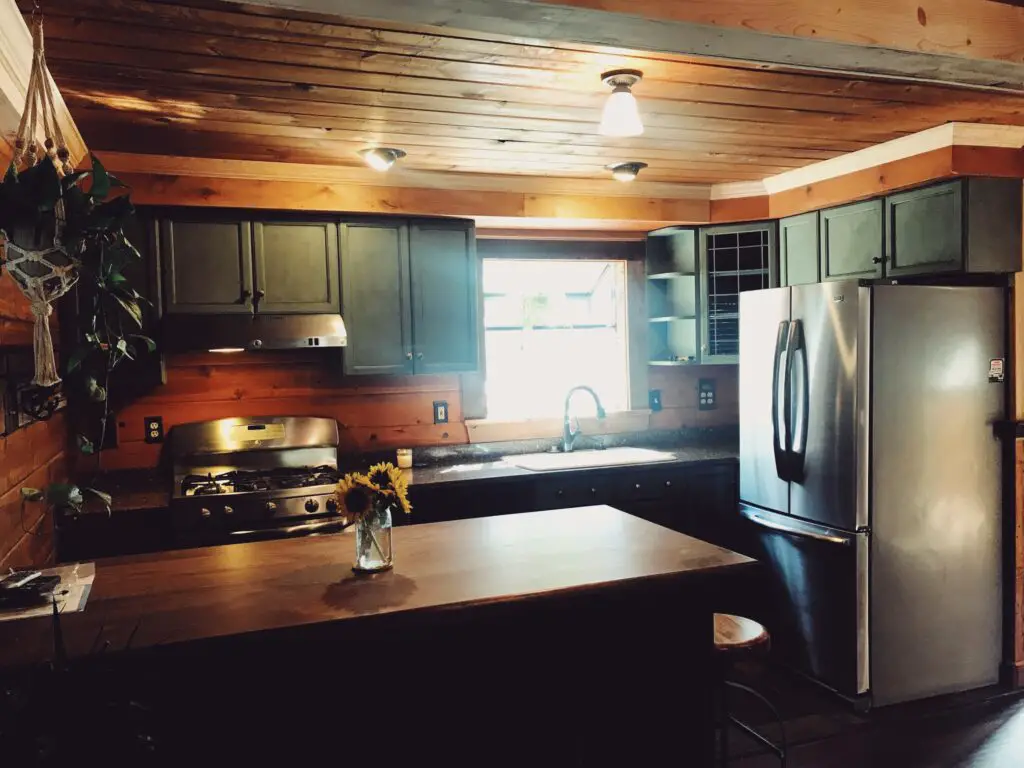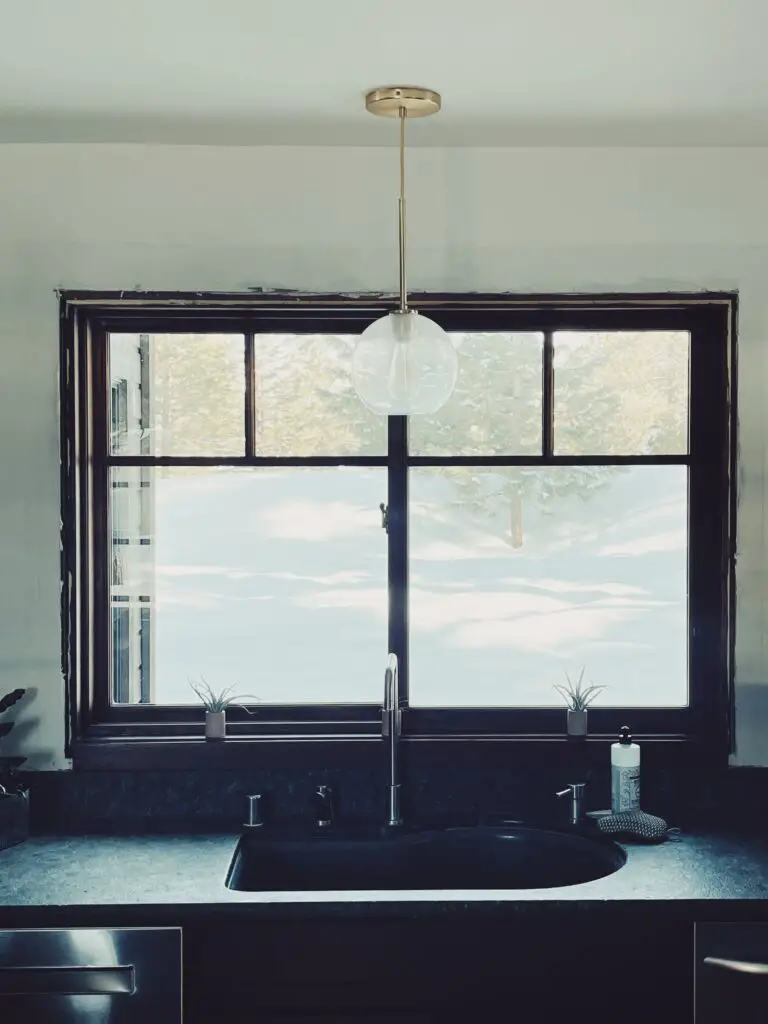DIYing your kitchen renovation is a gutsy move that’s perfect for some homeowners and a nightmare for others. Let’s discuss what we mean by DIY when we’re talking about a kitchen in order to figure out where you fit on the scale.
Contents
The kitchen renovation: hiring a contractor
When renovating a kitchen, most people will need contracting help unless they are exceptionally handy and/or their renovation doesn’t involve much more than replacing cabinets and countertops. Choose whether you want the contractor to quote your entire kitchen (meaning s/he sources your cabinets, countertops, tile, lighting, etc., and includes labor) or whether you want to get your own finishes (the stuff you touch or see in your kitchen) and just have him quote the labor. Count this second option as a “DIY your kitchen” option.
If you choose the DIY route here, you’ll pay a lot less than if you hire a contractor. Builders and contractors usually offer lower-quality products at a higher price. In other words, you could spend the same amount on cabinets through your contractor as you would at a cabinet store, but you would get builder-grade cabinets rather than mid- or high-quality cabinets.
If you decide to go with a contractor, you should check ahead of time to make sure they are okay with you sourcing your own cabinets, countertops, lighting, and flooring.
Doing it yourself

The next issue is deciding how you want your kitchen to look. Do you want to choose the finishes yourself, or should you hire a designer? There are a few factors to consider here!
Hire a designer if you plan to invest a lot of money in a new kitchen. In comparison to the whole project, the design fees are generally small.
You can DIY it if you have a modest budget and like to make your own choices. You can exercise your design muscles and express your creativity. ON a modest budget, the re-design of the kitchen usually involves painting cabinets and possibly installing new countertops. If you have a larger budget and still want to DIY, you might still want to consult with a designer in case there are some things you haven’t considered.
However, DIY your kitchen if you are more interested in saving money and don’t expect the kitchen to look like a million dollars anyway. You might be surprised by what you can achieve.
Also, consider your reason for redoing the kitchen. You can DIY it if you simply want to spruce it up before selling the house. If, however, your kitchen is clearly a significant issue and could hamper the sale of your home, you may want to consult a designer for advice on how to update it without spending a lot of money.
I Want to DIY My Kitchen: What Should I Do?

To transform your kitchen on a budget, paint your cabinets yourself. If budget permits, consider replacing them with cabinets from a used building supply store like Habitat for Humanity’s ReStore. You might get lucky and find an entire kitchen, or you might piece it together and paint the cabinets to match.
Countertops are another major expense. You can, however, find an inexpensive way to replace your countertops if you’re motivated to save money. If you don’t have high-quality cabinets, spending thousands on stone countertops seems a waste (if you had thousands to spend, you might consider getting better cabinets in the first place). Instead, DIY your countertops.
Do your research. We used 12″x 24″ marble tiles on plywood for countertops, saving close to $10,000 on marble slabs. There will be seams, but it may be worth it for the cost savings. Concrete countertops and butcher blocks are other options. You can also find laminate that looks and even feels like a high end material for half the sticker price.
Lighting and tile can also be found at ReStore. Since most backsplashes don’t require a lot of tiles, you may be lucky enough to find a few extra boxes of high-end tile leftover from someone else’s project.
DIYing your kitchen renovation on a small budget is a challenging task, but the results can be gratifying once you’re done. If you have a larger budget, DIY by getting your finishes from either a designer or sourcing them yourself rather than having your contractor get everything for you. In the end, you’ll have a better-designed and higher-quality kitchen.


